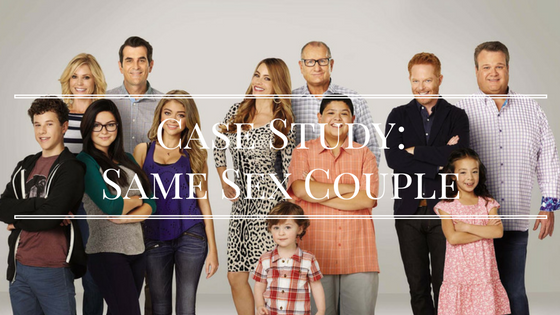Case Study: Same Sex Couple
Mitchell and his partner, Cameron, live together with their young adopted daughter, Lily. They are modestly wealthy, their home being worth $800,000 with a $250,000 mortgage remaining. They each have superannuation of approximately $200,000 and life insurance each of $500,000.
In Australia, as a same sex couple Mitchell and Cameron would be recognised as spouses, in case they didn’t have a Will. Also, their adopted daughter is considered a natural child of theirs under the laws dealing with estates. If their Mitchell or Cameron died intestate, then the laws of intestacy would apply, such that the surviving spouse would get the first $100,000, and then the remaining estate would be divided 1/3 to the spouse and 2/3 to Lily. Lily would inherit at eighteen years old.
However, Mitchell and Cameron do want to ensure their estate planning is done. They need to consider who would be the executors of the estate in the case that both of them have passed away, given that the funds would be held in trust for Lily. They also need to think about who would be suitable to be Lily’s guardian. They need to consider who will benefit if they all pass away together in an accident, and they also need to consider that if one of them should die, the other may re-partner.
Mitchell and Cameron decide to appoint Mitchell’s sister Claire and her husband, Phil, as guardians for Lily. However, their decision for executor is more difficult. On the first of them to die, they appoint each other. But in the event that they’ve both passed away, they are conscious that Claire and Phil shouldn’t also be the executors, to safeguard Lily’s inheritance. They really want Mitchell’s father Jay as one of the executors, but he is obviously a generation older and should pass before them in the natural order of things. Despite this concern, they end up appointing Jay and Claire as the alternative executors, because Jay is relatively healthy and should reach an age for Lily to be old enough to inherit.
After their house, which is jointly owned so will automatically transfer to the survivor of them, their biggest asset is their respective superannuation accounts. Because they want to control where their superannuation is paid, they decide to nominate that they superannuation should be paid into their estate, to their legal personal representative, and then they can deal with their superannuation in their Will.
Mitchell and Cameron decide that their superannuation should be used to pay out the mortgage, and then $200,000 should go into trust for Lily until she reaches twenty-five years old. The balance can be paid to the surviving spouse. This ensures that Lily will get something, if either of them re-partner and end up leaving the balance of their estate to their new partner.
 In the event that both of them pass away, Mitchell and Cameron confirm that the entire estate should form a testamentary trust for Lily, which she will control once she reaches the age of twenty-five years. Until then, Claire and Jay will be trustees of that trust. Such a trust will protect Lily’s inheritance from any future financial problems that she may suffer from, and also protect it from any future spouse of hers as well.
In the event that both of them pass away, Mitchell and Cameron confirm that the entire estate should form a testamentary trust for Lily, which she will control once she reaches the age of twenty-five years. Until then, Claire and Jay will be trustees of that trust. Such a trust will protect Lily’s inheritance from any future financial problems that she may suffer from, and also protect it from any future spouse of hers as well.
Finally, if Mitchell, Cameron and Lily all die together, they decide that they should split their combined estate in half. Half would be paid equally to Cameron’s siblings, and half would be paid to Mitchell’s siblings, being Claire and his new baby brother Joe once he reaches the age of twenty-five years.





Leave A Comment